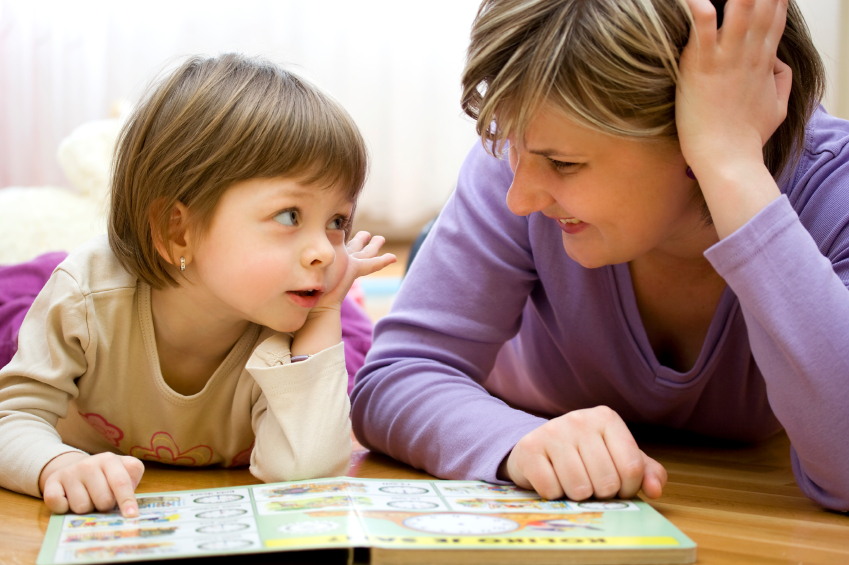Kindergarten Testing Explained
There was a time not too long ago that when a child turned a certain age, they simply went to kindergarten, whether they had any preschool behind them or not. There were no tests, and the only requirement was that the child was a certain age. That seems to have changed in many parts of the country, especially if you are interested in getting your child into an advanced program or a private school. You may find that they need to take a kindergarten test.

A kindergarten test is meant to determine a student's "readiness" to be in kindergarten and is not necessarily a measure of his or her intellectual capabilities. It is simply a gauge as to where children are in relation to what will be expected when they enter the classroom. No one wants to put young students through the stress of not being ready in school, so for many, taking a kindergarten test first is a very good thing and can help parents decide if their child is ready for elementary education.
The types of skills that are measured by these tests are not quite as cut and dry as you might think. This is not a test of whether your child can count to 100 or add numbers together. They are more related to social skills, communication skills, and motor skills. For instance:
- Can your child identify numbers and letters (in both capital and lower case)?
- Can your child give his full name when asked?
- Can your child identify various shapes (square, triangle, and circle)?
- Does your child have the ability to stay still and listen to a story for 10 minutes or more?
- Can your child speak in full, complete sentences?
- Can your child catch a ball (most of the time)?
- Can your child hop, skip, and jump?
- Can your child use utensils in the proper manner?
- Will your child follow directions if asked by an authority figure (teacher or parent)?
- Can your child finish one activity before starting another?
Being able to do the majority of these is usually enough to "pass" most kindergarten tests because they show a certain level of maturity. They also show that you have put in the time to ensure they have the fundamental communication skills, appropriate motor skills, and necessary mathematical ability to excel in a structured learning environment with other children.
Often more important than intellectual ability, social skills play a large part in determining whether a child is ready for school. Because socialization is one of the primary goals of kindergarten, it is important that children are properly prepared to play and learn with other children. Parents are generally able to gauge many of the areas in need of development, however a simple online kindergarten test may shed light on specific learning topics that will help best prepare children for a successful start in school.

What Can You Learn From a Kindergarten Readiness Test?
In preparing your young child for kindergarten, you know how important a good start in early elementary education is. You want the transition to school to be as effortless and enjoyable as possible for your child. Having these factors in place on day one of elementary school can play a big part in ensuring that your child is one of those who just loves to go to school. One of the best ways you can get your preschooler ready for school is to take a free readiness test for kindergarten.
So what exactly is a kindergarten readiness test? This test is short and easy, and it is designed for you as a parent to take on your own. There are no questions for your child to answer, but instead, the questions will be answered by you based upon your own observations of what skills your child has mastered. There are not "yes" and "no" questions but rather answers like Not Yet, Sometimes, Most of the Time, and Always. Children progress through development and learning in stages, and this assessment recognizes these stages.
The kindergarten readiness test covers some of the basic self-help skills that your child likely has already mastered which will ensure that he or she can function in a classroom with minimal assistance from the teacher. These skills include the ability to use the bathroom unassisted, the ability to cut with scissors and hold a pencil, and so forth. If you find that your child is lacking in any of these areas, you will want to take time to work with him or her in these areas.
Other areas of the readiness test pertain to physical abilities such as the ability to walk up the stairs and the ability to hop on one foot. These questions are designed to assess various areas of physical development. As you might expect, there are also some other questions pertaining to letters, numbers, rhyming, reading readiness, and so forth.
If you are concerned about your child being ready for school and if you want to learn more about which areas your child may need to focus on before school starts, take some time to complete the free assessment. This test can be taken over and over again from around the age of three on in order to provide ideas and tips to help you guide your child in learning exercises that will help them prepare for elementary school.
